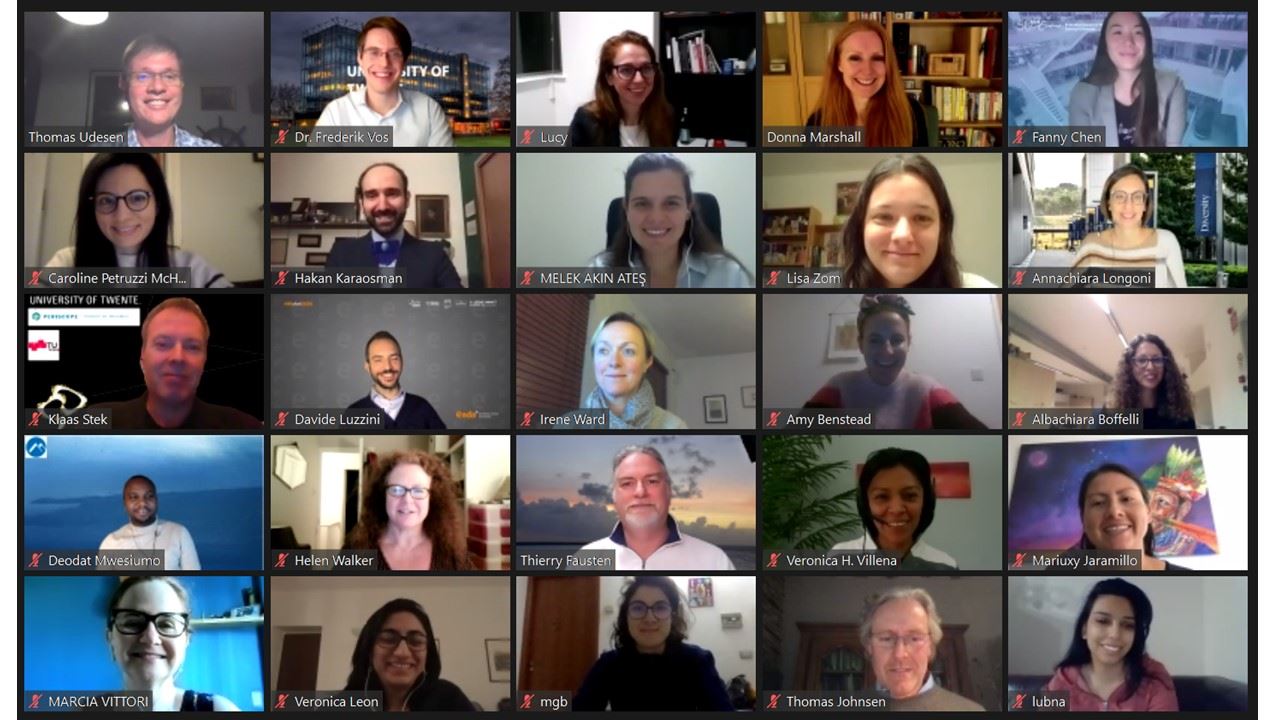On Nov 30th, we held the Workshop Sustainable Supply Chains Versus Covid 19, the opening event of not only the ‘Year of IPSERA’ but also the first activity for the newly formed IPSERA Sustainability Special Interest Group. We had almost 60 people attending an amazing array of presentations and discussions about solutions to ensure sustainable supply chains through this crisis and any crisis to come.
Nothing better than hearing from the speakers themselves:
Donna Marshall:
“In the procurement and supply chain world, we witnessed a natural social experiment in scenario planning, in risk mitigation and in crisis management. We saw some organisations reacting in a very blind knee-jerk way, forgetting they are part of a supply chain and focusing only on their own needs. Others were reacting as a community and pulling together to really help workers, suppliers and society. Some organisations and suppliers changed their entire business models in order to supply key protective equipment to frontline workers. It really was a tale of two supply chain reactions. Some of these reactions have led to calls for change in industries and for how we live, how we work and how we play. Some of the lessons from Covid-19 are here to stay. If we can learn these lessons, we can then shape a future that is more inclusive, more human and more sustainable”
Hakan Karaosman:
“Negative impacts have been exacerbated for lower-tier suppliers. Fashion supply chains need to become more connected. Fashion players must move from self-isolation toward multi-level partnerships”
Annachiara Longoni:
“Understanding how social impact supply chains function might be crucial to react after Covid-19 outbreaks. Tensions emerging between sustainability and resilience are becoming a pressing need”
Davide Luzzini:
“Let’s investigate social impact considering vulnerable people and focus on three response approaches: transform & adopt, collective action and system change”
Lucy McCarthy:
“The sustainability of our seafood supply chains is interlinked with our planetary health. Overfishing is widely acknowledged as the single greatest stress to marine wildlife and habitats. We really need to reach an agreement at the national and international levels on these issues”
Mellie Pullman:
“Prior to the pandemic 70% of seafood was sold to the non-home consumer, restaurants, catering and other institutions but now that market has disappeared which has caused many fishing organisations to go under as they did not have the ability to go online. One of the problems is that they have to offer a lot of variety and variety conflicts with good sourcing practices. They end up having a lot of different kinds of fish which means that they are delving into fish that are not sustainably sourced”
Thomas Udesen:
“One of the positive aspects emerging amidst and beyond Covid is collaboration. We saw what is possible when the industry, regulators and different players put their heads together and say we want to solve an issue. But we also saw some worst practices. Unfortunately, some procurement organisations were seen going 10-15 years back in time toward the mindset of ‘price first’. One of the possible ways to change this negative discourse is to bring together procurement practitioners around the world and have them engaged bottom up”
Oliver Hurrey:
“It is very important we get coordinated. There are far too many initiatives, platforms, groups, events and one of the challenges of trying to find progress for procurement on sustainability is that almost too much stuff going on as well as too little, arguably as well. It is time to clarify where you need to go and who you need to talk to tackle some of those challenges”
Stay tuned to interact with the Sustainability SIG future activities!


